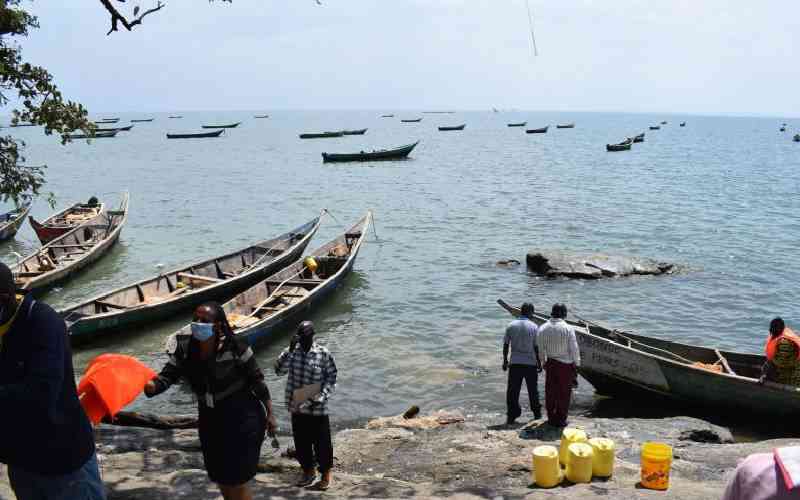×
The Standard e-Paper
Join Thousands Daily

The blue and golden rays dancing on the water's surface at sunrise create a magical paradise.
Fishermen rowing ashore in their boats after night-long ventures make Lake Victoria even more memorable as they approach Usenge Beach in Siaya.